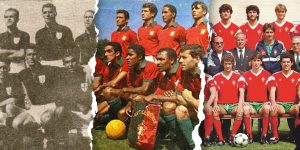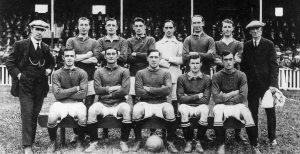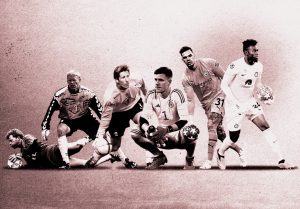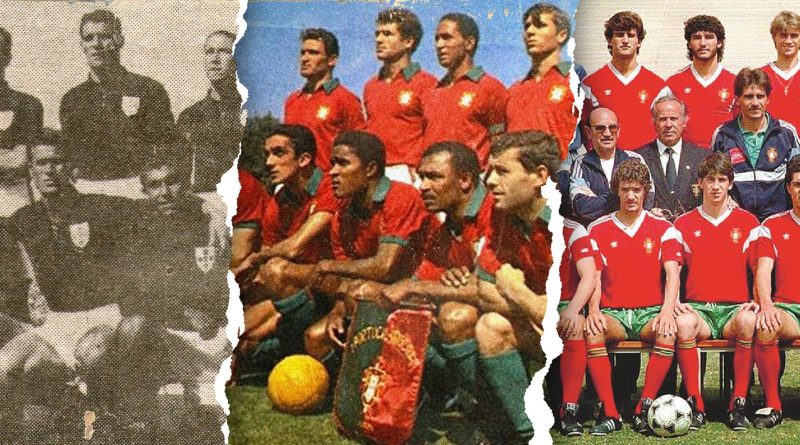The Evolution of Football: From Its Origins to Modern Day
The Evolution of Football
Football, often referred to as “the beautiful game,” has evolved significantly over the centuries. From its humble beginnings to becoming a global phenomenon, football has a rich history filled with fascinating developments. This article explores the evolution of football, tracing its origins, significant milestones, and the impact it has on modern society.

Early Origins Ancient Roots
Football-like games have been played for thousands of years across various cultures. Ancient civilizations, including the Greeks, Romans, and Chinese, played games involving kicking a ball. For instance, the Chinese game of Cuju played during the Han Dynasty (206 BC â 220 AD), is considered one of the earliest forms of football.
Medieval Europe
In medieval Europe, various forms of football were played, often with few rules and considerable violence. These early versions of the game, known as mob football, were popular in England. Villages competed against each other, and matches could involve hundreds of players.

The Birth of Modern Football 19th Century England
The modern version of football began to take shape in 19th century England. Public schools like Eton, Harrow, and Rugby developed their own rules for the game. The need for a standardized set of rules led to the formation of the Football Association (FA) in 1863. The FA’s rules became the foundation for modern football, distinguishing it from rugby.
The Spread of Football
Football quickly spread beyond England. The establishment of clubs like Sheffield FC (1857) and the formation of leagues such as the English Football League (1888) contributed to the game’s popularity. International matches began, with the first official international game played between Scotland and England in 1872.
Professionalism and Global Expansion Professionalization
The late 19th and early 20th centuries saw the professionalization of football. Players began to be paid for their skills, leading to the formation of professional clubs and leagues. This period also saw the emergence of legendary players like Billy Meredith and Herbert Chapman.
FIFA and International Competitions
The Fédération Internationale de Football Association (FIFA) was founded in 1904 to oversee international competitions. The inaugural FIFA World Cup took place in 1930 in Uruguay, marking the beginning of football’s most prestigious tournament. The tournament’s success helped popularize football worldwide.
The Modern Era Tactical Innovations
The modern era of football has seen significant tactical innovations. Managers like Rinus Michels, who developed “Total Football,” and Arrigo Sacchi, known for his pressing game, revolutionized how football is played. These tactical changes have made the game faster and more dynamic.

Technological Advancements
Technology has also played a crucial role in modern football. The introduction of video assistant referee (VAR) systems has aimed to reduce refereeing errors. Additionally, advancements in sports science have improved player fitness and performance.
Commercialization
Football has become a major commercial enterprise. Television rights, sponsorships,
Evolution of Football
and merchandise sales generate billions of dollars annually. Clubs like Manchester United, Real Madrid, and FC Barcelona have become global brands with massive fan bases.
The Social Impact of Football Unity and Identity
Football has a unique ability to unite people. It fosters a sense of community and identity, both locally and globally. National and club teams become symbols of pride for their supporters, often transcending social and cultural barriers.

Social Issues
Football has also been a platform for addressing social issues. Campaigns against racism, sexism, and other forms of discrimination have found a voice through the sport. Players like Marcus Rashford have used their influence to advocate for social change.
Conclusion
The evolution of football from its ancient origins to the modern day is a testament to its enduring appeal. The sport has grown from rudimentary, often chaotic games to a highly organized, global phenomenon. Its impact on society, culture, and even politics cannot be overstated. As football continues to evolve, it remains a powerful force that brings people together, fuels passions, and shapes identities worldwide.
famous players and moments
Pele and the rise of a global superstar
Considered one of the greatest soccer players of all time, Pele brought soccer to the world’s attention. His outstanding skill and sportsmanship helped popularize soccer in countries like the United States where it previously had few fans. Pele’s success paved the way for other international superstars such as Diego Maradona, Lionel Messi and Cristiano Ronaldo.
a memorable match
Some matches have become legendary for their significance and drama. The 1950 World Cup final, in which Uruguay defeated Brazil at the Maracana Stadium, is remembered as the Maracanazo. The 1966 World Cup final, in which England won their only World Cup title, remains a historic moment. More recently, Germany’s shocking 7-1 win over Brazil in the semi-finals of the 2014 World Cup highlighted the unpredictability of sport.
The development of women’s soccer
Early Struggles and Development

Women’s football faces numerous challenges, from bans to lack of support. Despite these obstacles, the sport has grown significantly. The first unofficial Women’s World Cup took place in 1970, but it was not until 1991 that FIFA organized the first official Women’s World Cup.
modern achievements
Today, women’s football enjoys great recognition and support. The 2019 FIFA Women’s World Cup in France broke viewership records, proving the sport’s growing popularity. Athletes like Martha, Megan Rapinoe, and Alex Morgan have become inspirational icons for young girls around the world.
Football’s role in culture
music and soccer
Football has influenced popular culture, especially music. Songs like âThree Lionsâ by The Lightning Seeds and âWaka Wakaâ by Shakira have become anthems for football fans. Football chants and songs create a passionate atmosphere in the stadium, uniting fans to support their team. movies and documentaries
The drama and passion of football has been captured in numerous films and documentaries. A movie like Goal! Documentaries like The Two Escobars provide insight into the impact sports have on individuals and society.



